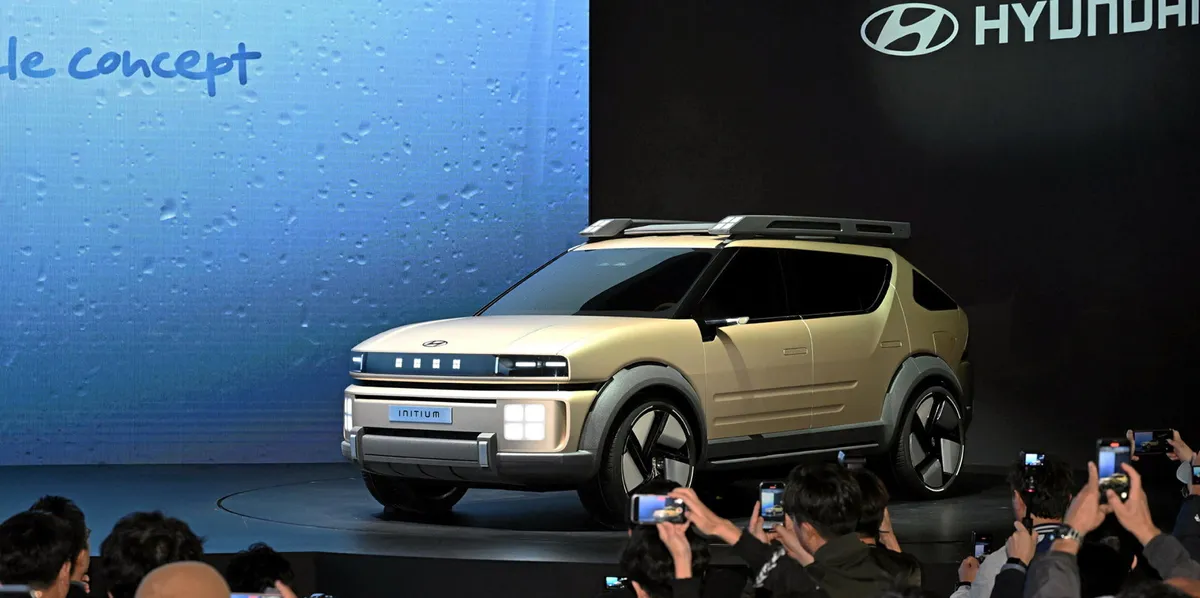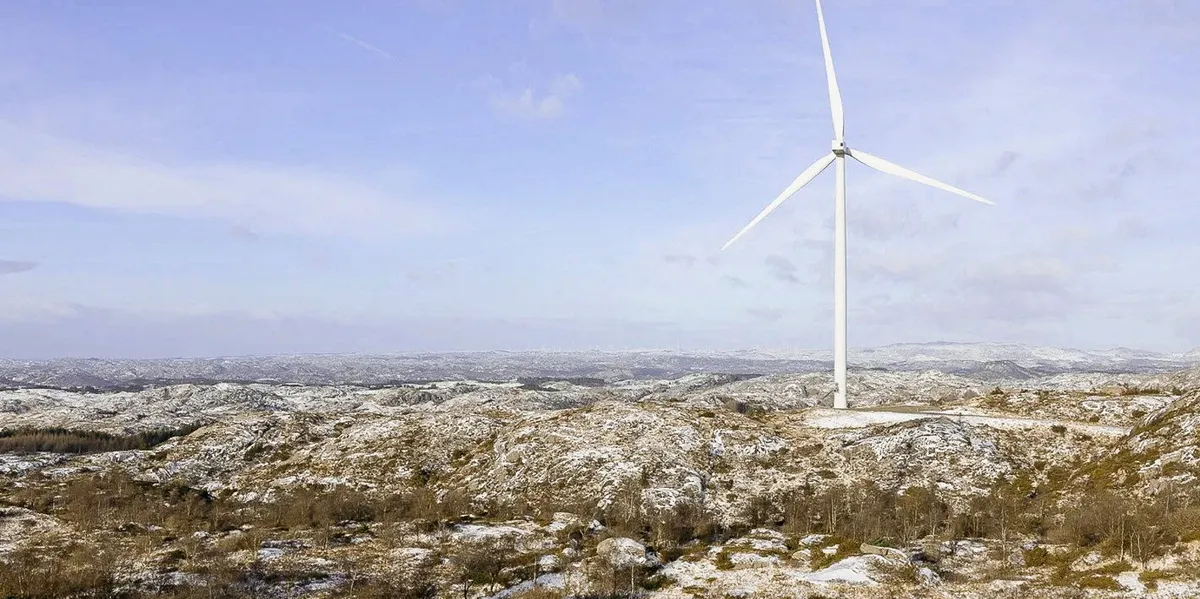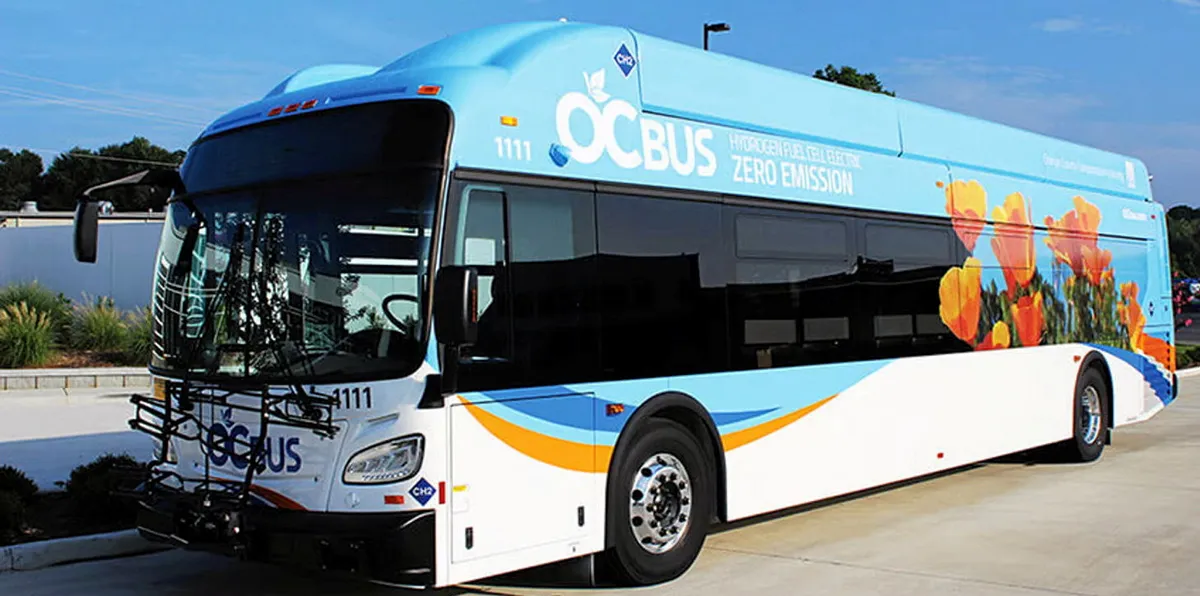
Korean automaker Hyundai has unveiled a new hydrogen car that it plans to mass produce from the middle of next year.
The Initium hydrogen fuel-cell electric vehicle (FCEV) has a targeted driving range of more than 650km (404 miles), which the company says is one of its “biggest advantages”, even though many battery-electric cars officially have longer ranges.
“Hyundai Motor’s clear, unwavering commitment to hydrogen over the past 27 years is rooted in our belief in its potential as a clean, accessible and therefore fair energy source for everyone,” says CEO Jae-hoon Chang.
“We are dedicated to pioneering a future where hydrogen is used by everyone, in everything, and everywhere.”
Chang told a promotional event near Seoul earlier today that the Initium is “scheduled to be mass-produced starting in the middle of next year”.
“The exact price will be announced at the time of the vehicle release... it will be set at a level that consumers and the market can accept,” he added.
Hydrogen Insight understands that this model will replace the Nexo, which has not had a major update since it was first released in 2018, and has seen disappointing sales in recent times.
The automaker says that its new vehicle concept marks the debut of a “new design language — called ‘Art of Steel’ — embodying the character of HTWO, Hyundai Motor Group’s dedicated hydrogen value chain business brand”.
“Our challenge began from the manufacturing stage, where we pushed the formability of steel to the extreme to create a form of art,” says head of global design, SangYup Lee.
“With INITIUM, we’ve crafted a more SUV-like design that is both solid and safe, reflecting our dedication to our customers through 'customer-centric design’.”
The company adds: “INITIUM’s distinct SUV-like aesthetic seamlessly integrates city living functionality with outdoor adventure capability with its bold lines and solid structure, balancing sturdiness and sophistication.”
The vehicle will also be able to power and charge household appliances and personal devices via its vehicle-to-load (V2L) feature.
“Notably, the outdoor terminal is designed to connect directly to a 220V household outlet, transforming INITIUM from a means of transportation into a potential energy supplier,” Hyundai says.
“To ensure ample safety for passengers in the event of a collision, the vehicle is reinforced with a multi-skeleton structure at the front, as well as a side body structure, and incorporates nine airbags, ensuring world-class collision safety performance.”
In addition, the new vehicle will “include a FCEV-specific route planner that addresses one of the biggest pain points for FCEV buyers: charging infrastructure”.
“With this feature, users can easily plot an optimal route, finding charging stations along the way without having to access a separate app or make a phone call. Users can check the location accessibility and operating status of an identified charging station, as well as the number of waiting vehicles and therefore the possibility of charging.”
The company addsthat Initium “is a Latin word meaning ‘beginning’ or ‘first’, representing Hyundai Motor’s status as a hydrogen energy pioneer and its commitment to develop a hydrogen society”.
Hyundai’s optimism about hydrogen cars comes amid a global slump in sales, with its Nexo FCEV set for a 25% drop in sales this year in South Korea — despite it being widely available at half-price due to government subsidies.
The company this month issued a recall of all its Nexos in the US and Canada due to a risk that a faulty component can cause hydrogen gas leaks and fires while the vehicles are parked, with calls for a similar recall in South Korea due to widespread H2 leakage.
The high cost and lack of availability of hydrogen fuel have also negatively affected driver sentiment towards FCEVs, particularly in South Korea, where around three quarters of the country’s H2 refuelling stations were shut 12 months ago due to a hydrogen supply problem, while about half of all H2 refuelling stations in the country have broken down since the start of 2022.
Hydrogen cars are known to be more expensive to buy, maintain and refuel than battery-electric models, with their only advantages said to be shorter refuelling times and longer ranges.
This article was updated to include new comments from Hyundai's CEO.


